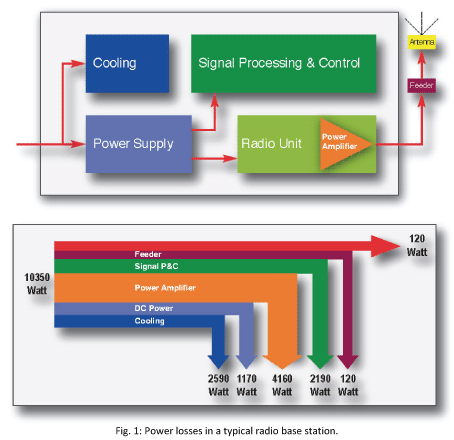by Erich Prem
The first results of the E4U initiative to develop a new ‘electronics for energy efficiency’ research agenda are now available.
Today, 40% of energy consumed is electrical energy, and this share is forecast to grow to 60% by 2040. Much of this is wasted, and if Europe is to reach its ambitious goals for the reduction of greenhouse gases, it is essential that electrical energy be used more efficiently. This is all the more necessary because of the need to remain competitive internationally. If Europe wishes to reap the enormous potential of new technologies for energy efficiency, it must not only invest in its excellent research and technology base but also improve its strategies for research in this area.
These are the aims of the initiative E4U (‘Electronics Enabling Efficient Energy Usage’) which is devising a strategic action plan for power electronics research in Europe. Recent advances in power electronics and information technology make them crucial to harvesting the enormous potential to save electrical energy in households, transportation, industry and consumer products.
Power Electronics is a cross-functional technology covering the high gigawatt (GW) power in energy transmission lines down to very low milliwatt (mW) power needed to operate a mobile phone. It is responsible for the reliability and stability of the whole power supply infrastructure in Europe from the sources, the transmission and distribution, up to the broad variety of applications in industry, transportation systems and the home. Power electronics is the key to precisely controlling the flow of electrical energy from the source to the load according to the requirements of the load. The E4U initiative sets the focus on the huge energy savings enabled by power electronics in four areas of application:
- Buildings account for more than 40% of energy use in developed countries. Applying existing energy-efficient technology it is possible to achieve energy savings of between 40% (for heating, ventilation and air conditioning) and 80% (for lighting, by combining efficient sources with intelligent control).
- Power supplies process the energy required to operate almost all electronic equipment. According to the International Energy Agency, residential appliances account for over 30% of electricity consumption in most countries and represent one of the fastest growing energy loads. It is estimated that at least one-third of this could be saved cost-effectively by 2030.
- In the industrial manufacturing area, electric drives account for around 65% of electricity consumption. Currently, the vast majority of these motors do not have electronic controls. By converting all such simple electric motors to variable speed, it is possible to cut power consumption by almost half.
- Power electronics will also play a key role in future smart electricity networks. The smart grid is a combination of information, communications and power electronics that improves all the elements of the electricity chain from generation and transmission to distribution and consumption, in order to improve the efficiency, reliability and security of supply and cost.

E4U will foster world leadership in electronically enabled energy efficiency in the EU. Based on an analysis of the European research scene in this field and following discussions with European experts and the industry, E4U has created a strategic roadmap. This roadmap starts from specific European strengths such as the electronics industry and our high-quality research groups. It also acknowledges the improvements to be made in software tools, in bringing device and component costs further down, and in improving the use of wide bandgap semiconductor materials.
It will be vital for Europe’s success in this field to foster a more coherent research landscape. Today, with very few exceptions, power electronic topics are spurious in public research programmes. Europe needs many more explicit actions targeting electronics research for energy efficiency. It also needs to focus on key industrial and technical challenges such as reducing the cost of components and systems, improving reliability, fostering modularity and standardization, and pushing efficiency even further. It is also necessary to dramatically improve the visibility of this kind of research through demonstrations and coordinated large-scale initiatives. This will not only help to overcome the current fragmentation of the research scene, but will also attract more young researchers to a research field that is vital for Europe’s future.
The E4U initiative is coordinated by eutema Technology Management. Further partners are the European Centre for Power Electronics, the Universidad Politécnica de Madrid and the Tyndall Institute in Cork. E4U receives funding from the European Commission’s ICT programme of FP7.
Link:
http://www.e4efficiency.eu
Please contact:
Erich Prem
eutema Technology Management GmbH, Austria
Tel: +43 1 5245316
E-mail:










